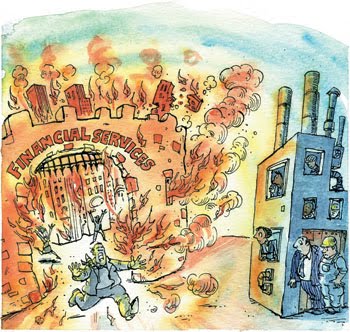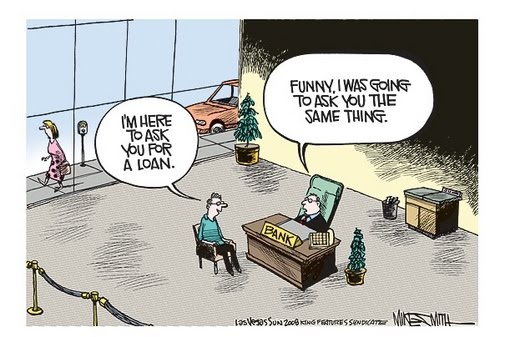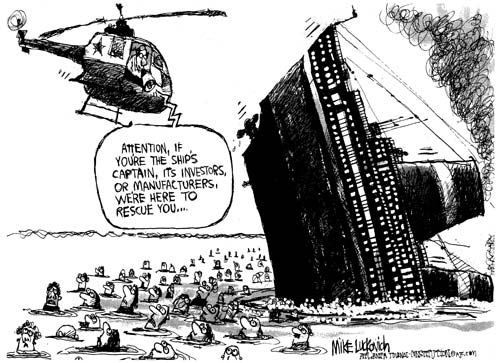Compass Point Research & Trading, a registered broker/dealer and one of the leading financial research firms investigating Alt-A and subprime mortgage backed securities (MBS), will be hosting a conference call to discuss mortgage repurchase risks. The call will be held on Tuesday, August 31, 2010 at 1:00 P.M. Eastern and will be open to the public by using the following call-in number: 1-866-812-6491. Jason Stewart, the Managing Director of Compass Point, will moderate the call and I have been invited to be the featured guest. The plan is to have some prepared remarks, and then open up the floor to questions. I would welcome the participation of any of my readers.
Compass Point issued a report on August 17, 2010 that did a great job of attempting to quantify the potential liability that banks are facing from private-label mortgage repurchase obligations. The report cites to the Subprime Shakeout and discusses the potential impact of the FHLB lawsuits (prior articles here and here), the investor syndicate, the FHFA subpoenas, the mortgage insurance lawsuits against Countrywide in New York State Court, the Greenwich Financial lawsuit against Countrywide, and the recent involvement of the New York Fed in enforcing repurchase obligations. The report recognizes that the real issue is access to loan files and that the investor syndicate may have amassed enough voting rights to compel servicers to turn these files over in a large number of trusts. In short, Compass Point seems to have a firm understanding of the key issues and developments with respect to mortgage repurchase liability.
What’s the bottom line? While Compass Point’s report provides best and worst case scenarios, it also takes a position as to the ultimate liability that the largest banks will face in connection with their origination of subprime and Alt-A mortgages during the 2005-2007 timeframe. While these loss estimates may be conservative (they assume investors will only attempt to put back roughly 50% of loans, whereas from my experience, this number could be more like 75-80%), they are nonetheless significant: liability for Alt-A and subprime originations combined is estimated at $35.2 billion for Bank of America (based on the acquisition of Countrywide and Merrill Lynch) and $23.9 billion for JP Morgan (based on the acquisition of Bear Stearns). The report goes on to note that there are serious questions over whether banks have adequately reserved for these losses, echoing the letter sent to JP Morgan this year by the SEC.
I am very much looking forward to this call on Tuesday, and hope that many of you will join.





